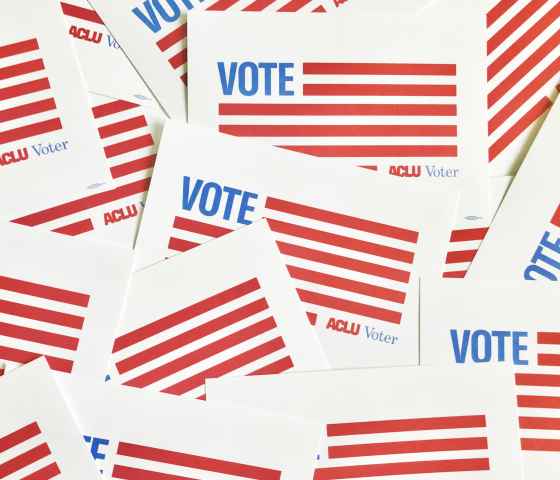REDUCING ILLINOIS JAIL AND PRISON POPULATION
Illinois has a problem with mass incarceration. Among other indicators, our state prison system was designed to house approximately 32,000 individuals, but currently houses nearly 40,000 people - many of whom are serving long sentences. Each year, more people enter our prisons.
QUESTION 1:
Do you believe that Cook County and the State of Illinois should reduce their current incarceration rates? If yes, please describe what specific policies you will pursue if elected to reduce the number of people incarcerated in prisons and jails.
| O'BRIEN: DID NOT RESPOND |
 |
PROSECUTORIAL DISCRETION
The Cook County State's Attorney's office has been criticized in the past for overcharging defendants in order to pressure them to accept guilty pleas instead of going to trial.
QUESTION 2:
Will you commit to only charging crimes that the evidence clearly supports (i.e., not overcharging). If yes, please share what steps, if any, you would take to ensure that cases are appropriately charged?
| O'BRIEN: DID NOT RESPOND |
 |
In Cook County, all drug cases are directly filed by police officers without any oversight or review of the charges by the State's Attorney's office.
QUESTION 3:
If you are elected, will you end the practice of allowing the police to directly file charges, and require all charges to be reviewed by a prosecutor before filing?
| O'BRIEN: DID NOT RESPOND |
 |
BOND REFORM
Although people charged with crimes are supposed to be considered innocent until proven guilty, many spend months and even years incarcerated pretrial simply because they cannot afford to pay a monetary bond.
QUESTION 4:
Do you support ending the courts' reliance upon cash bail to determine whether a defendant should be jailed while they await trial, and instead utilizing an individualized showing of substantial flight risk or danger to other persons?
| O'BRIEN: DID NOT RESPOND |
 |
ALTERNATIVES TO INCARCERATION: SUBSTANCE ABUSE AND MENTAL HEALTH
People often wind up in the criminal legal system because they are struggling with substance use disorders and mental health issues.
QUESTION 5:
Is it appropriate for prosecutors, police, and the courts to play a role in helping people with substance use disorders and mental health issues access evidence-based care provided by qualified health care professionals?
| O'BRIEN: DID NOT RESPOND |
 |
CONDITIONS OF RELEASE AND PROBATION
Conditions of release often include prohibitions that are difficult to avoid, such as curfew violations or associating with groups of people from shared communities.
QUESTION 6:
Would you encourage police departments in Cook County to limit arrests for violations of release conditions that do not harm or pose a risk of harm to others?
| O'BRIEN: DID NOT RESPOND |
 |
ADDRESSING RACIAL DISPARITIES
Racial disparities traditionally mark our criminal legal system. People of color are overrepresented in contacts with the police (traffic and pedestrian stops), prosecutions and incarceration.
QUESTION 7:
Do you believe that the State's Attorney's Office has a duty to reduce racial disparities in the criminal legal system?
| O'BRIEN: DID NOT RESPOND |
 |
QUESTION 8:
Will you commit to tracking and working to eliminate racial disparities in decisions made by the State's Attorney's office, such as disparities in charging decisions, bail recommendations, plea bargains, and sentencing recommendations? If you answered yes, please include any specific policies and practices you will implement to reduce racial disparities.
| O'BRIEN: DID NOT RESPOND |
 |
CRIMINALIZATION OF POVERTY
Low-income people are regularly directed into the criminal legal system and face barriers to getting out due to their limited financial circumstances. A combination of high fines and fees for minor traffic tickets, civil offenses, and even misdemeanor crimes result in jail time and punitive collection practices for those unable to pay.
QUESTION 9:
Do you agree that high fines, fees and financial assessments in the criminal and traffic court system have contributed to the "criminalization of poverty" where poor people face harsheroutcomes for the same conduct as others due to their poverty? If you answered yes, please describe the specific actions you will take as State's Attorney to mitigate the harm that fines, fees, and other financial assessments imposed by criminal and traffic courts inflict upon people living in poverty.
| O'BRIEN: DID NOT RESPOND |
 |
POLICE ACCOUNTABILITY
In recent years, public attention has focused on the need to enhance police accountability tothe public. Residents from all neighborhoods across Cook County want policing that reflects the needs and values of their community and respects all residents.
QUESTION 10:
Would you ask the Attorney General to appoint an independent prosecutor in all officerinvolved shootings?
| O'BRIEN: DID NOT RESPOND |
 |
QUESTION 11:
What standards would your office use to determine when to prosecute a police officer who engages in misconduct?
| O'BRIEN: DID NOT RESPOND |
The Supreme Court has ruled that criminal defendants should receive all relevant information that may impact the credibility of a witness. A recent DOJ investigation of the Chicago Police Department found that there is currently no system to ensure that information about CPD officers - such as disciplinary actions or evidence of having provided false reports in the past - is disclosed to the State's Attorney's Office and criminal defendants as required.
QUESTION 12:
Would you take affirmative steps to investigate the credibility of CPD officers when considering them as witnesses for prosecutions? If you answered yes, please describe what systems will you put in place to ensure that the State's Attorney's Office is consistently providing defendants with this constitutionally mandated information?
| O'BRIEN: DID NOT RESPOND |
 |
IMMIGRATION
Cook County proudly proclaims itself to be a welcoming community for immigrants and asylum seekers. Interactions with the criminal legal system can adversely impact an individual's immigration status.
QUESTION 13:
Do you think prosecutors should consider the immigration-related consequences of prosecutorial decisions at all stages of a case and reach immigration-safe dispositions for noncitizens whenever possible? If yes, please explain what steps you will take to minimize the collateral immigration consequences to non-citizens in the criminal legal system?
| O'BRIEN: DID NOT RESPOND |
 |
|
|
TRANSPARENCY
Transparency in public office is critical to build trust and confidence between residents and their government. Given the crucial role of the States Attorney's Office, providing the public with a clear understanding of how government authority is used takes on heightened importance.
QUESTION 14:
Would transparency be an important value for your office?
| O'BRIEN: DID NOT RESPOND |
 |
QUESTION 15:
Will you commit to publicly posting statistical information on charging decisions, convictions, plea bargains, declinations, diversion program placements, and sentences -disaggregated by race and gender?
| MARIE: DID NOT RESPOND |
 |
QUESTION 16:
If the State's Attorney's office is not already collecting the data mentioned above, will
you pledge to create a plan for collecting and publicizing that data?
| O'BRIEN: DID NOT RESPOND |
 |
CIVIL LIBERTIES POLICY LIGHTNING ROUND
| Do you commit to using your platform as Cook County State's Attorney to support state legislation that would reform the criminal legal system?' |  |
| WouId you support legislation that reclassifies the penalty for small-scale drug possession from a felony to a misdemeanor? |
 |
| Illinois' dollar-value thresh.old for prosecuting retail theft as a felony is one of the lowest of any state, and was last updated ten years ago. Would you support leitislation increasing the threshold to a level similar to surrounding states? |  |
| Would you support efforts to repeal mandatory minimums and mandatory sentencing enhancements that limit judges' discretion? |  |
| Would you maximize the use of restorative justice and pre-adjudication diversion programs to keep young people out of the criminal legal system whenever possible? |  |
| Will you commit to charging the lowest level crime that still promotes public safety? |  |
| Would you commit to diverting people with substance abuse and mental health disorders away from jails when there is a community-based or alternative treatment available that does not involve incarceration? |  |
| Do you commit to working to expand the treatment programs available for people with substance abuse and mental health issues, including asking legislators for appropriations and working with communities? |  |
| Do you commit to recommending that all fees be waived for people sentenced for criminal, traffic, or civil offenses who cannot afford to pay? |  |
| Do you commit to recommending that any fines imposed as a penalty for a civil, traffic, or criminal offense be set at an amount that is attainable in light of an individual's financial circumstances? |  |
